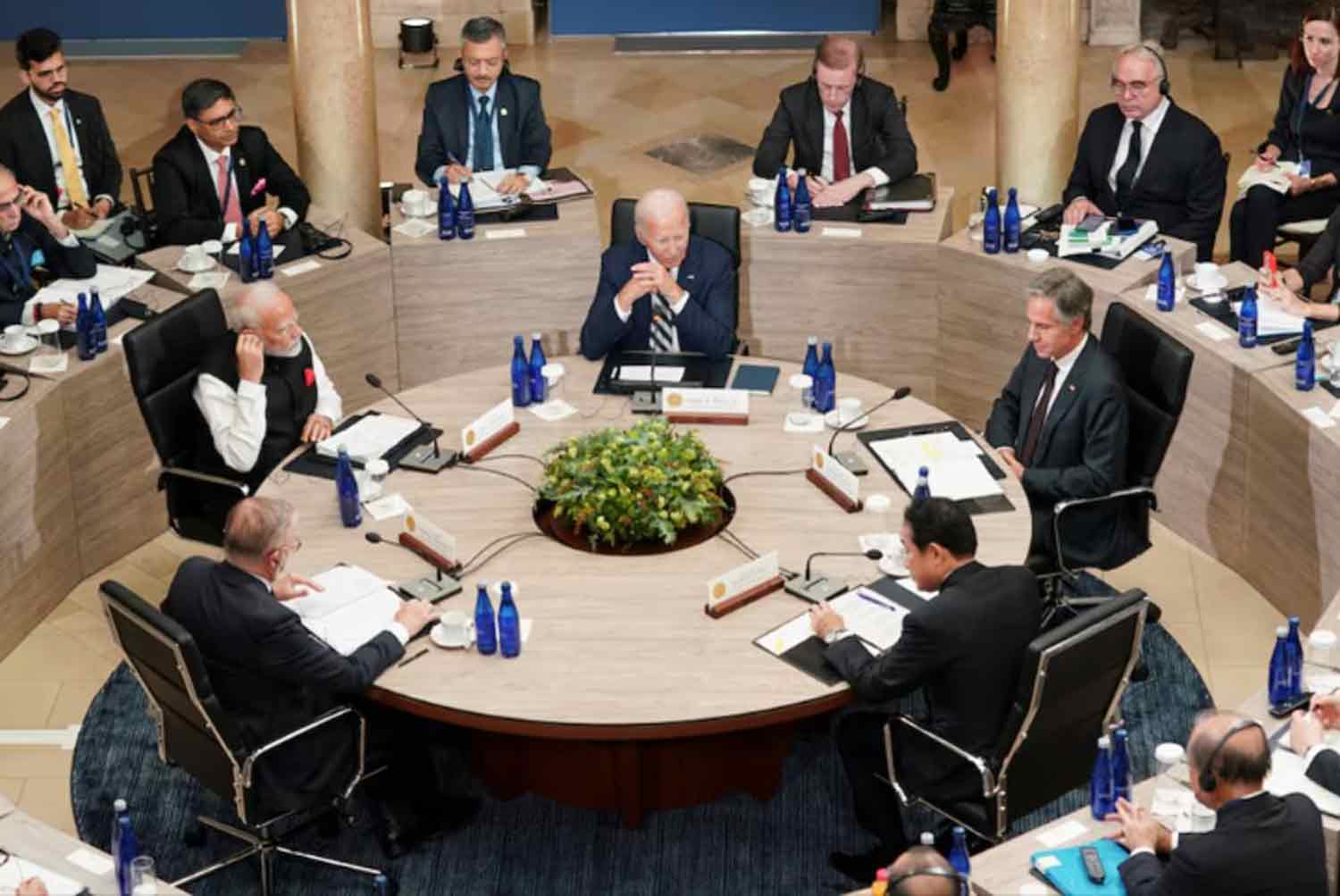Leaders from Australia, India, Japan, and the United States have intensified collaborative security measures in the economically significant waters of Asia, as outgoing U.S. President Joe Biden convened with his counterparts from the Quad alliance, formed in response to mutual apprehensions regarding China.
During a meeting with Japanese Prime Minister Fumio Kishida, Indian Prime Minister Narendra Modi, and Australian Prime Minister Anthony Albanese near his hometown in Delaware on Saturday, Biden underscored the significance of sustaining the Quad, which he regards as a hallmark of his foreign policy. He is set to conclude his presidency following the U.S. presidential election on November 5.
The leaders announced plans for joint coast guard operations in the coming year, which will involve personnel from Australia, Japan, and India collaborating aboard a U.S. coast guard vessel. Additionally, they indicated intentions to enhance military logistics cooperation, although specifics regarding the location of these coast guard activities were not disclosed.
Furthermore, the leaders expressed their commitment to expanding the Indo-Pacific Partnership for Maritime Domain Awareness, which was initiated two years prior.
While the White House asserted that the Quad summit was not aimed at any specific nation and that Beijing should not perceive the initiative as a threat, Biden commenced the summit’s group discussions with a briefing focused on China.
In a joint statement that refrained from explicitly naming the Chinese government, the leaders denounced “coercive and intimidating maneuvers in the South China Sea.” Analysts noted that these new maritime security initiatives would convey a clear message to Beijing and signify a further pivot of the Quad’s focus towards security matters, reflecting escalating concerns regarding China’s strategic intentions.
Chinese President Xi Jinping has expressed opposition to the Quad alliance, perceiving it as a strategy to encircle Beijing and escalate tensions. President Biden characterized Beijing’s approach as a change in tactics rather than a shift in overall strategy, noting that China continues to challenge the United States in the South and East China Seas, as well as in the Taiwan Strait.
Biden remarked, “We believe Xi Jinping is prioritizing domestic economic issues and seeking to stabilize China’s diplomatic relations, while also attempting to create diplomatic leeway to assertively advance China’s interests.” These comments were made during an official event broadcast.
China asserts sovereignty over nearly the entire South China Sea, which includes areas claimed by the Philippines, Brunei, Malaysia, and Vietnam. Additionally, it lays claim to territories in the East China Sea that are disputed by Japan and Taiwan. China also regards the democratically governed Taiwan as part of its territory.
The joint statement from the leaders contained strong language regarding North Korea, denouncing its ballistic missile tests and “malicious cyber activities.” A U.S. official indicated that the leaders expressed shared concerns about Russian military support for North Korea.
The Quad is intensifying efforts to deliver critical and security technologies, including a new open radio access network, to the Pacific Islands and Southeast Asia, regions experiencing significant competition with China.
Additionally, the leaders have launched a health initiative aimed at addressing cervical cancer. Lisa Curtis, an Asia policy expert at the Center for a New American Security and a former administration official, noted that India, which is not aligned with any military alliance, has been apprehensive about the perception that the Quad may be militarizing the Indo-Pacific.
“However, I believe that China’s recent maritime assertiveness may be altering India’s perspective and encouraging it to be more receptive to the concept of Quad security collaboration,” she stated.
Analysts and officials indicate that President Biden’s hosting of the Quad is part of a strategy to solidify the group’s institutional framework prior to his own departure from office, as well as that of Prime Minister Kishida, who is set to resign following a leadership contest next week, alongside upcoming elections in Australia next year.
When questioned about the group’s longevity, Biden placed his hand on Modi’s shoulder and affirmed that the Quad is here to remain. Prime Minister Albanese emphasized the significance of the Quad’s coast guard initiative, stating that the collaboration among the four nations would involve personnel potentially operating from a single vessel, thereby enhancing interoperability and cooperation, as noted in a transcript from a press conference he conducted in Philadelphia.
Prior to the summit, Albanese engaged in discussions with Biden at his residence, focusing on bilateral cooperation between the two nations in areas of defense and security, particularly concerning the Indo-Pacific region.
The Quad previously convened at the foreign minister level during Donald Trump’s administration, which is notable as he is currently campaigning against Vice President Kamala Harris in the upcoming November elections.
The initiative has received bipartisan backing, evidenced by the establishment of a congressional Quad Caucus prior to the summit, and Biden elevated the Quad to a leaders’ level in 2021.
Discover more from Defence Talks | Defense News Hub, Military Updates, Security Insights
Subscribe to get the latest posts sent to your email.





